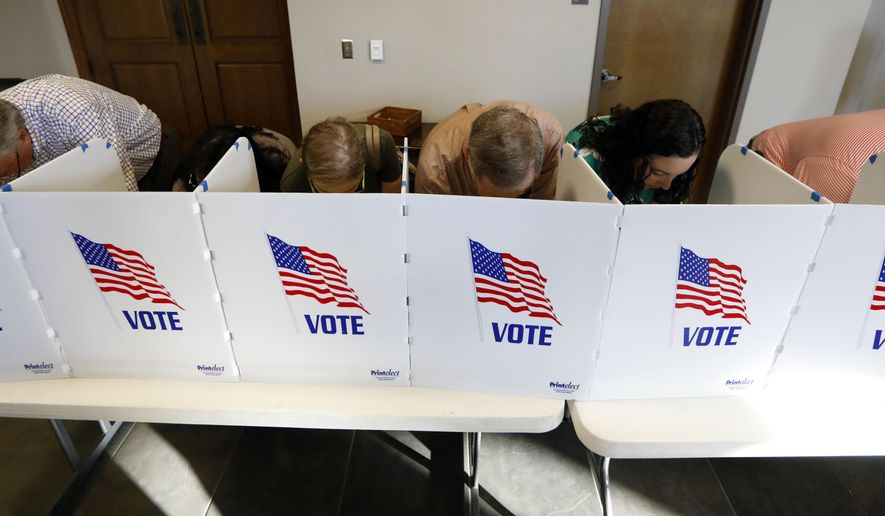Samuel Buggs remembers learning about the significance of the right to vote as a seventh grader 50 years ago, in particular the sacrifices made during the suffragette and civil rights movements to expand the franchise to all Americans.
Losing that right, he told a D.C. Council hearing Thursday, was “devastating,” even after he had served more than two decades in prison for two armed robberies.
Although it wasn’t a deterrent to committing a crime, “it weighed heavily on my spirit the fact that I gave up my ability to be able to vote one day,” Mr. Buggs told a Judiciary and Public Safety Committee hearing focusing on a far-reaching bill to give ex-felons and even certain prisoners still in jail the right to vote.
The legislation, co-introduced by the entire D.C. Council, would make the city after January 2021 the first jurisdiction in the country to restore the right to vote to incarcerated felons. (Maine and Vermont never took away the right to vote for prisoners.) As the law stands right now in the District, convicted felons can vote only after fully completing their sentences.
City law does allow D.C. prisoners detained for a minor offense to vote.
“When someone is convicted of a crime, they often lose their freedom, but they don’t lose most of their rights, including their right to freedom of speech,” said at-large Council member Robert White, who wrote the legislation. “Why then would they lose their most basic right — the right to vote?”
At the age of 16, Mr. Buggs, a Ward 1 resident, started using heroin and landed behind bars for carrying out the robberies. It was, he told the hearing, “confusing” and murky” when he got out of prison whether or not he would be able to vote,
When he realized he would be able to vote, he was “elated.”
“People shouldn’t be so ready to throw away people who make mistakes,” Mr. Buggs said.
During the hours of testimony of only support for the legislation, formerly incarcerated people, local activists and community members noted the disparate impact of the restrictions of ex-prisoner voting. The District has the highest incarceration rate in the country, and 95% of the District’s convicted felons are black. One of every 13 black city residents are ineligible to vote because of a felony conviction, compared to one of every 56 non-black person.
Bill advocates said restoring voting privileges lower rates of recidivism and would correct a policy dating back to the days of racist Jim Crow laws.
“Just simply re-enfranchising individuals doesn’t undo the generations of harm that were intended to create that civic death,” said committee Chairman Charles Allen.
Tyrone Walker, an associate at the Justice Policy Institute, spoke about how his parents’ disenfranchisement because of their felony convictions went on to affect him and his siblings.
“Because of their disenfranchisement, they never walked us to the polls, they never discussed current events or politics, they never talked about why voting is important,” Mr. Walker said, adding that he eventually lost his voting rights himself when he was convicted of a felony.
Mr. Allen, Ward 6 Democrat, noted that the District does not have its own federal prison and that coordinating with the federal system to make sure that the District’s almost 6,000 residents in jail get their ballots in the mail is a challenge.
Further, many of the formerly incarcerated testified that while they were in federal prisons across the country, the states counted them in the census as a resident, reaping the benefits from their presence in the census without giving them the right to vote.
Mr. White asked whether or not the law should have an exemption for felons convicted of more serious crimes.
“Voters choose politicians, not the other way around,” responded Blair Bowie, an attorney from the Campaign Legal Center, adding that it becomes a slippery slope when such carve-outs are introduced.
Alice Miller, the executive director of the D.C. Board of Elections, said that this change would not be a burden for her office, however, it would have to create a database to keep track of where the felons are imprisoned. Otherwise, she said, they would be treated like any other absentee voter.
• Sophie Kaplan can be reached at skaplan@washingtontimes.com.




Please read our comment policy before commenting.